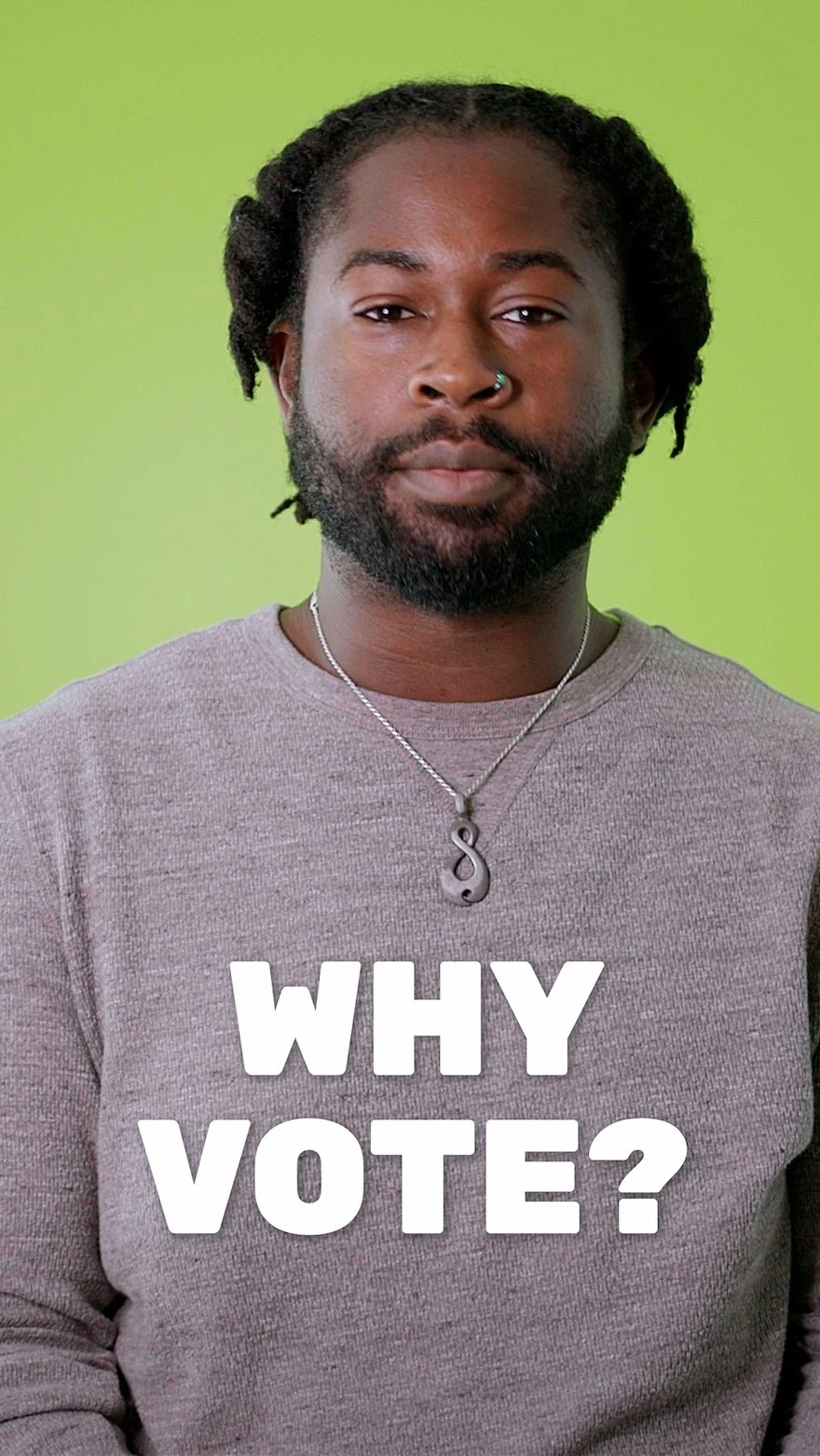The Only Real Threat
September 18, 2024 • Written by Julie Winokur
If you’ve been following the news from Georgia recently, the State Election Board has been creating headlines. This is in keeping with a year of election-related controversies that have left voters in Georgia asking: Will there be a ballot dropbox in my neighborhood? Am I still registered to vote since I changed address last month? Why can’t I give water to someone who has been waiting hours to vote? Are dead people really voting?
All of this leaves me wondering: How do you stay positive about the democratic process when the voting rules are a moving target?
We went to Georgia to hear from youth voters, in part because they represent the future and in part because we desperately needed to quell our fear that democracy is doomed. If young people become disenfranchised to the point that they don’t think voting matters, then we will unwittingly abandon the only thing that might save us. The reality is that if all Georgia’s eligible young voters cast a ballot, they could determine the winners and losers with clear margins.
Four years ago we covered the election from Norcross, Georgia for Time magazine. We had no idea that the outcome of the presidential race and the balance of the Senate would come down to a place like Gwinnett County, but it did. This election cycle, we decided to return to Georgia because it seems destined for the political crosshairs once again.
We reached out to Georgia Youth Justice Coalition (GYJC) after seeing an online post about a Changemakers Bootcamp they were hosting. This week-long training teaches politically engaged youth about the election process and how their state government operates. The training covers ballot initiatives and the offices that are up for election, and then participants practice phone banking and door-to-door canvassing. It is a classic exercise in civic mobilization founded on the conviction that informed citizens make active participants.
We interviewed, filmed and photographed over a dozen young activists who ranged in age from 16 to 32. They were curious, committed and undeterred by the state of politics in Georgia. They had a deep understanding of the importance of local elections and how the ballot measures in their communities would impact their lives more than the presidential outcome. They were not excited about either presidential candidate at the time—this was prior to Biden stepping aside—but not voting was not an option.
We produced a series of videos that cover everything from why young people vote to the reality of gerrymandering to the threat of misinformation. We decided to work with GYJC and build a coalition of organizations that could use our video content to encourage young voters to participate. We listened to organizations like the ACLU of Georgia, Students Learn, Students Vote (SLSV), Progress Georgia, Fair Districts GA, Alliance for Youth Action, and Race Forward, and determined how to best disseminate our content.
What we learned from our partners is that while each video addressed an issue that youth were passionate about, exposing injustices in the political system at this moment threatens to further disenfranchise young voters at a critical time. Ultimately, we want our work to encourage young people to vote and we had to acknowledge that there is a time to push back and there is a time to inspire participation. Now is the time to inspire.
To expand on a popular adage, elections are a lot like baseball; they revolve around statistics but the actual game determines the outcome. When it comes to voting, we have to overcome the obstacles and our universal fears about the erosion of democracy, and get ourselves to the polls. The pep talk in the locker room can’t dwell on the players’ shortcomings and how bad the umps are, it has to rally their enthusiasm, their fighting spirit, their invincibility in the face of adversity. Democracy hinges on that. The only true threat to democracy is apathy.



